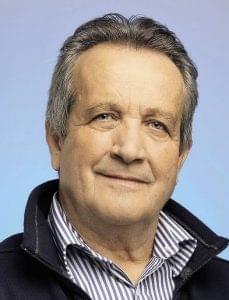Intensive fish farming has a stable future
Ferenc Lévai, CEO of Aranyponty Zrt. informed that cultivating fish in lakes is less profitable than other forms of farming, the rate is about 4-5 percent. The mains reason behind this is the lack of area- and fish-based funding, and the fact that any investment only starts making returns in 2-3 years.

Ferenc Lévai
CEO
Aranyponty
The CEO revealed that the Hungarian Fisheries Operational Programme (MAHOP) could work better, as applicants have to wait for a long time for funding decisions. He hopes that fish processing-related projects will be realised as soon as possible, because this segment is lagging behind: Market demand is bigger than the production capacity currently available.
Changing consumption habits can be felt in this domain as well. Mr Lévai reckons one of the biggest changes is the decrease in live fish sales, as a growing number of shoppers prefer ready-to-cook fish products. Just like in the case of meat, higher added value generates higher sales in the fish segment.
Hungary’s fisheries sector can’t make progress without the development of fish cultivation in lakes, by which the emphasis would shift from quantity to quality. These lake aquacultures can also satisfy the rapidly developing fishing tourism needs. Mr Lévai said intensive fish farming has a stable future, as sea catch rates are declining but demand for fish is on the rise, thanks to the current health trend.
Related news
Antibiotic data collection to expand from 2026, reporting now mandatory for aquaculture
🎧 Hallgasd a cikket: Lejátszás Szünet Folytatás Leállítás Nyelv: Auto…
Read more >Related news
Table reservations for National Restaurant Week start with unchanged prices
🎧 Hallgasd a cikket: Lejátszás Szünet Folytatás Leállítás Nyelv: Auto…
Read more >







